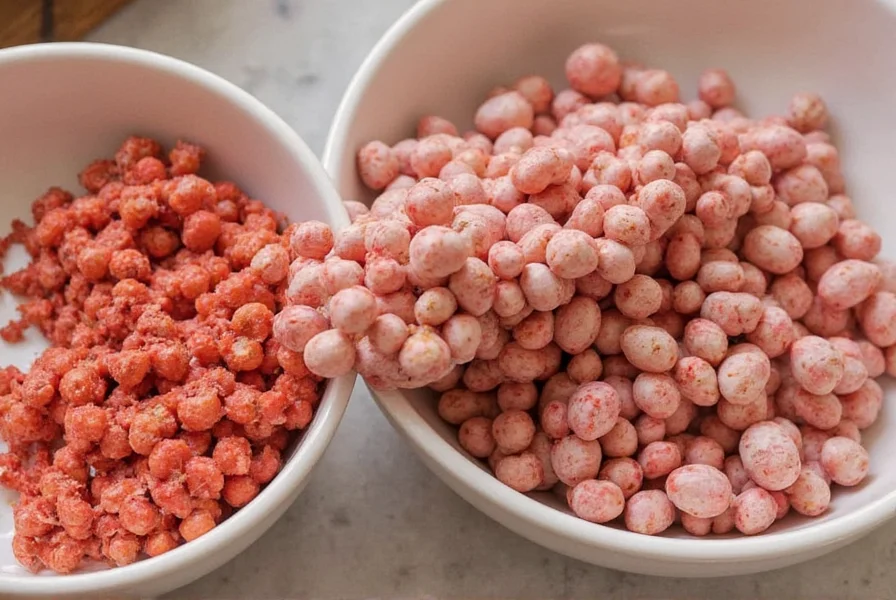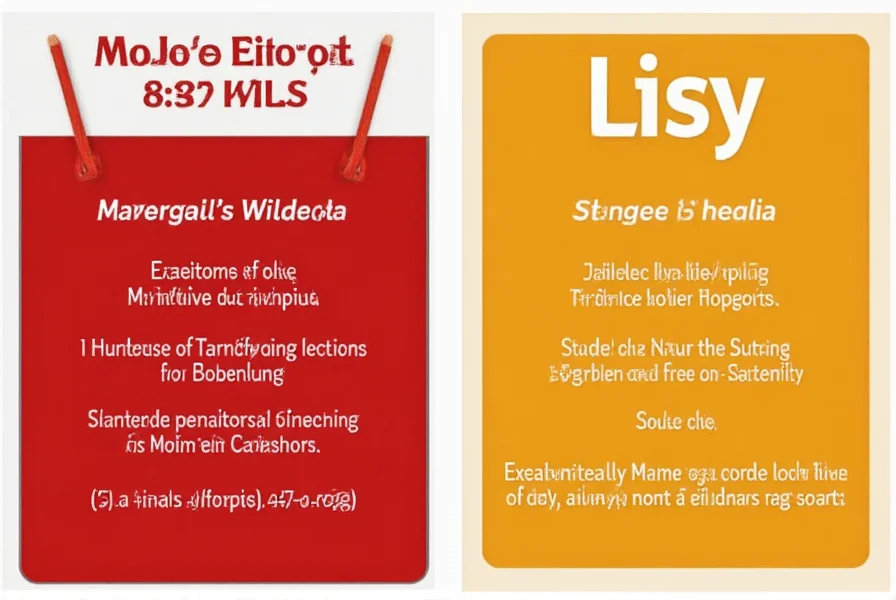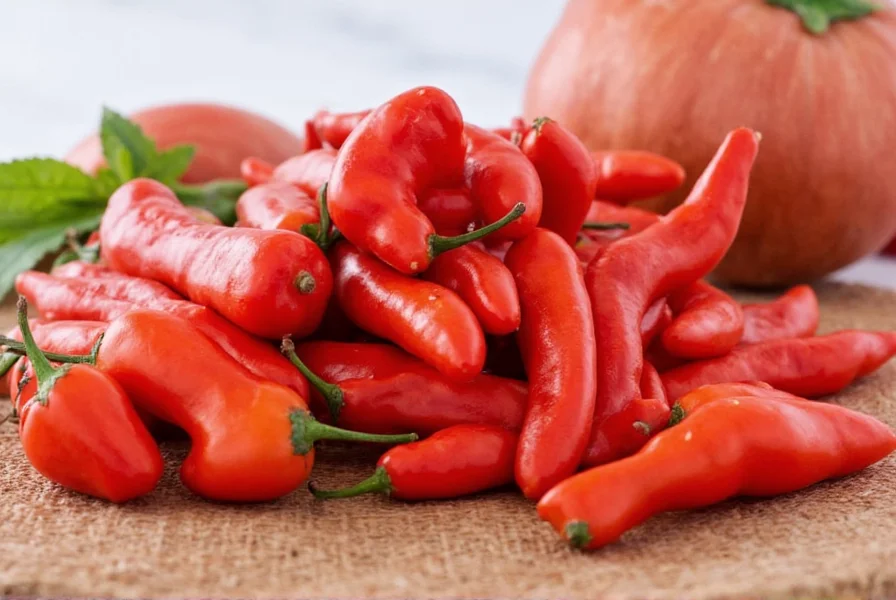When evaluating cayenne pepper products from any supplier, including Lisy Corporation, understanding quality markers is essential for both culinary professionals and home cooks. Cayenne pepper's heat level, color consistency, and freshness directly impact its culinary applications and potential health benefits. This guide provides objective information about cayenne pepper quality standards that apply across the industry, helping you make informed decisions regardless of supplier.
Understanding Cayenne Pepper Quality Metrics
Cayenne pepper quality isn't just about heat—it encompasses multiple measurable factors that determine its value in culinary and potential wellness applications. The Scoville Heat Unit (SHU) scale provides the most recognized measurement of capsaicin content, with authentic cayenne typically ranging from 30,000 to 50,000 SHU. However, professional chefs and food manufacturers consider additional quality indicators when selecting premium cayenne products.
| Quality Indicator | Standard Range | Industry Significance |
|---|---|---|
| Scoville Heat Units | 30,000-50,000 SHU | Determines spice intensity for recipe consistency |
| Ash Content | 6-8% | Indicates mineral content and processing purity |
| Moisture Content | 8-10% | Affects shelf life and microbial safety |
| Color Value (ASTA) | 40-80 | Measures pigment concentration and visual appeal |
Evaluating Commercial Cayenne Pepper Suppliers
When researching companies like Lisy Corporation for cayenne pepper sourcing, several verification steps help ensure product reliability. Reputable spice manufacturers typically provide documentation for food safety certifications including FDA compliance, USDA organic certification when applicable, and often undergo third-party laboratory testing for contaminants. The presence of these verifiable credentials represents standard industry practice for legitimate spice suppliers.
For commercial buyers evaluating potential suppliers, requesting a Certificate of Analysis (CoA) for specific cayenne pepper batches provides objective quality metrics. These documents typically include measurements for:
- Microbial testing results (aflatoxins, salmonella, E. coli)
- Heavy metal screening data
- Actual Scoville rating for the specific batch
- Moisture content verification
Practical Applications of Quality Cayenne Pepper
Professional kitchens and food manufacturers utilize cayenne pepper differently based on quality characteristics. Higher-grade cayenne with consistent heat levels allows for precise recipe formulation, while inferior products with variable potency can compromise dish consistency. Understanding these applications helps explain why quality verification matters beyond simple heat measurement.
When incorporating cayenne pepper into culinary creations, consider these professional techniques:
- Heat activation: Cayenne's capsaicin compounds release more fully when combined with fats—consider blooming in oil before adding to dishes
- Timing matters: Adding cayenne early in cooking mutes heat while preserving flavor; adding late preserves maximum heat intensity
- Complementary pairings: Quality cayenne enhances rather than dominates when balanced with complementary spices like cumin or smoked paprika

Storage and Shelf Life Considerations
Proper storage significantly impacts cayenne pepper quality regardless of supplier. Light, heat, and moisture represent the primary enemies of spice freshness. For optimal preservation:
- Store in airtight containers away from direct light
- Maintain temperatures below 70°F (21°C)
- Avoid proximity to heat sources like stoves or ovens
- Consider refrigeration for long-term storage of bulk purchases
Ground cayenne typically maintains peak quality for 6-12 months when properly stored, while whole dried peppers can last 1-2 years. The gradual degradation of capsaicin and volatile oils results in diminished heat and flavor over time—a natural process that affects all cayenne products regardless of initial quality.
Industry Standards for Spice Quality Verification
The American Spice Trade Association (ASTA) establishes voluntary quality guidelines that reputable suppliers follow. These standards include specific testing methodologies for color measurement, volatile oil content, and foreign material screening. Companies like Lisy Corporation that serve commercial markets typically adhere to these industry benchmarks to ensure product consistency.
When evaluating any cayenne pepper supplier, look for evidence of participation in third-party verification programs. The most reliable indicators include:
- Current FDA facility registration
- Valid organic certification when claimed
- Recent third-party lab testing reports
- Membership in professional trade organizations

Making Informed Purchasing Decisions
Whether sourcing cayenne pepper for professional or personal use, understanding quality verification processes empowers better purchasing decisions. Rather than focusing on any single supplier, develop a systematic approach to evaluating spice quality through objective metrics and verifiable documentation. This methodology serves consumers well regardless of which legitimate supplier they ultimately choose.
For those specifically researching Lisy Corporation cayenne pepper products, direct verification through official company channels remains the most reliable approach. Requesting current Certificates of Analysis and reviewing their quality control documentation provides concrete evidence of product standards beyond marketing claims.
What certifications should I look for when purchasing cayenne pepper from commercial suppliers?
Reputable cayenne pepper suppliers should provide documentation for FDA compliance, and when applicable, USDA organic certification. Additional valuable certifications include GFSI-recognized food safety certifications like SQF or BRC, and allergen control program verification. Always verify these certifications are current and apply specifically to the cayenne pepper products you're considering.
How can I verify the actual heat level of cayenne pepper before purchasing in bulk?
Request a Certificate of Analysis (CoA) for the specific batch you're considering. This document should include laboratory-tested Scoville Heat Unit measurements. Reputable suppliers provide these upon request. For smaller purchases, look for products that specify their heat range on packaging rather than vague terms like 'hot' or 'extra hot'.
What's the difference between cayenne pepper powder and cayenne pepper extract?
Cayenne pepper powder is simply dried and ground cayenne peppers, typically containing 30,000-50,000 SHU. Cayenne pepper extract is a concentrated liquid form where capsaicin has been extracted using solvents, often standardized to specific capsaicin percentages (0.25%-3%). Extracts provide more consistent heat levels for commercial applications but require careful measurement due to their concentrated nature.
How does proper storage affect the quality of cayenne pepper over time?
Exposure to light, heat, and moisture accelerates the degradation of capsaicin and volatile oils in cayenne pepper. Properly stored in airtight containers away from light and heat sources, ground cayenne maintains optimal quality for 6-12 months. Whole dried peppers last longer (1-2 years). Refrigeration extends shelf life but requires careful moisture control to prevent clumping.
What are the key indicators of high-quality cayenne pepper in commercial products?
High-quality cayenne pepper displays consistent vibrant red color, fine uniform texture without clumps, and a strong characteristic aroma. Laboratory indicators include appropriate Scoville ratings (30,000-50,000 SHU), moisture content between 8-10%, ash content of 6-8%, and ASTA color values of 40-80. Third-party lab testing verifying absence of contaminants is also essential for commercial-grade products.











 浙公网安备
33010002000092号
浙公网安备
33010002000092号 浙B2-20120091-4
浙B2-20120091-4